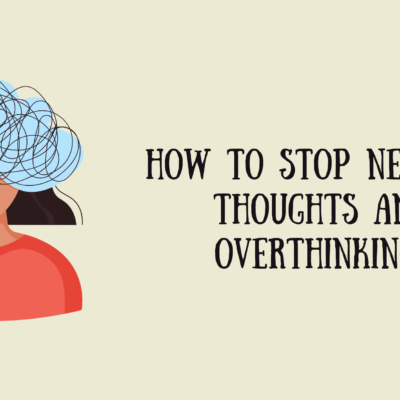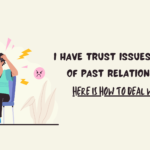How to Stop Negative Thoughts and Overthinking: Negative thoughts and overthinking can trap you in a cycle of stress, anxiety, and self-doubt. Whether it’s worrying about the future, regretting the past, or doubting yourself, these thoughts can drain your energy and affect your mental well-being. However, overcoming negative thinking is possible with the right strategies and mindset shifts.
In this article, we will explore why negative thoughts and overthinking happen, their effects, and practical ways to stop them so you can live a peaceful and confident life.
Also Read:
- How to Find Peace Within?
- How do I Stop Caring About What Others Think?
- How to Find Happiness from Within?
How to Stop Negative Thoughts and Overthinking?
1. Understanding Negative Thoughts and Overthinking
What Are Negative Thoughts?
Negative thoughts are self-critical, fearful, or doubtful ideas that make you feel anxious, sad, or unworthy. These thoughts often focus on failures, fears, or worst-case scenarios.
What Is Overthinking?
Overthinking happens when you analyze situations excessively, replay past events, or constantly worry about the future. Instead of finding solutions, overthinking creates stress and confusion.
Common Examples of Negative Thoughts and Overthinking:
- “What if I fail?”
- “I’m not good enough.”
- “People will judge me.”
- “I should have done things differently.”
- “Something bad is going to happen.”
These thoughts can become a habit, making it difficult to focus, relax, or take action in life.
2. The Impact of Negative Thinking and Overthinking
Mental and Emotional Effects:
- Increased stress and anxiety
- Lower self-esteem and confidence
- Feeling stuck in indecisiveness
- Emotional exhaustion
Physical Effects:
- Sleep disturbances
- Headaches and muscle tension
- Fatigue and lack of motivation
Behavioral Effects:
- Procrastination due to fear of failure
- Avoiding new opportunities
- Difficulty making decisions
Since negative thoughts and overthinking affect every aspect of life, it’s important to break free from them.
3. How to Stop Negative Thoughts and Overthinking
A. Identify Your Thought Patterns
The first step is to become aware of your negative thoughts. Many people overthink without realizing it.
- Write down your thoughts. Keep a journal of what you think about throughout the day.
- Recognize triggers. Notice when and why negative thoughts occur (e.g., stress at work, social situations, past mistakes).
- Ask yourself: “Is this thought helpful or harmful?”
Awareness helps you gain control over your thoughts instead of letting them control you.
B. Challenge Negative Thoughts with Logic
Negative thoughts often exaggerate fears or focus only on the worst outcomes. Questioning them can reduce their power.
- Ask yourself:
- “Is this thought based on facts or just fear?”
- “What evidence do I have that this is true?”
- “What is the best-case scenario?”
- Reframe negative thoughts. Instead of saying, “I will fail,” say, “I will try my best, and even if I fail, I will learn.”
By challenging negative thoughts, you shift your mindset toward logic and optimism.
C. Practice Mindfulness and Stay Present
Overthinking usually focuses on the past (regret) or the future (worry). Mindfulness brings you back to the present moment.
- Practice deep breathing. Breathe in for 4 seconds, hold for 4 seconds, and exhale for 4 seconds.
- Try meditation. Apps like Headspace or guided meditations on YouTube can help.
- Use grounding techniques. Focus on five things you can see, four things you can touch, three things you can hear, two things you can smell, and one thing you can taste.
Being present helps you break free from the overthinking cycle.
D. Distract Yourself with Positive Activities
Sometimes, the best way to stop overthinking is to shift your focus to something productive or enjoyable.
- Exercise: Physical activity releases endorphins, reducing stress and anxiety.
- Engage in hobbies: Painting, music, writing, or any creative activity can distract your mind.
- Spend time with positive people: Talking to loved ones can help you see situations from a different perspective.
- Go for a walk in nature: Being outdoors calms the mind and helps you feel refreshed.
Taking action prevents your mind from dwelling on negative thoughts.
E. Set a “Worry Time”
If overthinking keeps interrupting your day, schedule 15-30 minutes of “worry time.”
- During this time, write down all your concerns without judgment.
- After the time is up, tell yourself, “I have thought about this enough for today.”
- Move on to a different activity.
This technique trains your brain to stop overthinking throughout the day.
F. Take Action Instead of Overthinking
Overthinking often paralyzes decision-making. Instead of thinking endlessly, take small actions.
- Break big problems into smaller steps. Focus on what you can do right now.
- Set a time limit for decisions. Example: “I will decide within 10 minutes.”
- Accept that mistakes are part of learning. Instead of fearing failure, treat it as feedback for growth.
The faster you take action, the less time you have to overthink.
G. Replace Negative Self-Talk with Positive Affirmations
Negative self-talk reinforces fear and doubt. Replace it with encouraging and positive statements.
- “I am capable and strong.”
- “I choose to focus on solutions, not problems.”
- “Every challenge helps me grow.”
Repeating positive affirmations daily rewires your brain to think more confidently.
H. Seek Professional Help if Needed
If negative thinking and overthinking affect your daily life significantly, talking to a therapist or counselor can help. Therapy provides practical coping strategies and helps you understand the root cause of your thoughts.
4. Long-Term Strategies to Maintain a Positive Mindset
To prevent negative thoughts from returning, develop these healthy habits:
- Practice gratitude: Write three things you’re grateful for each day.
- Surround yourself with positivity: Be with people who uplift and support you.
- Limit social media and negative news: Too much negativity affects your mental state.
- Get enough sleep and eat well: A healthy body supports a healthy mind.
Over time, these habits train your brain to focus on the good rather than dwell on the negative.
Conclusion
Negative thoughts and overthinking can feel overwhelming, but they are not permanent. By identifying your thought patterns, challenging negativity, practicing mindfulness, and taking action, you can break free from the cycle of overthinking.
Remember, your thoughts do not define you. You have the power to control your mindset, build confidence, and live a peaceful, positive life.








